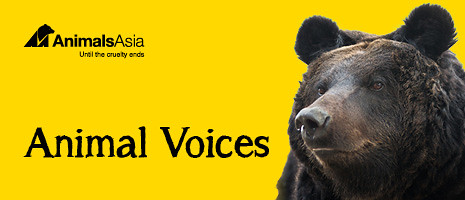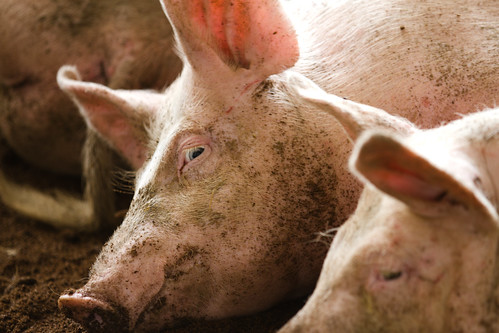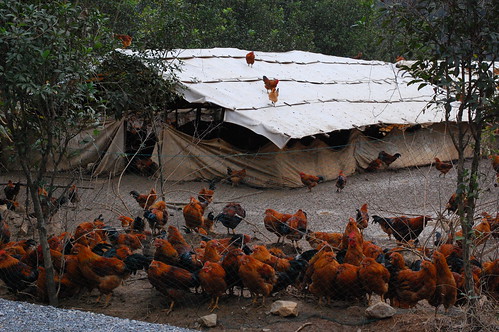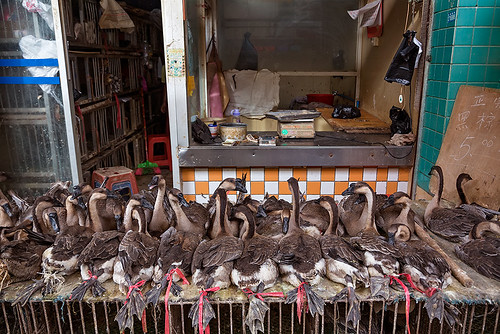The proposed Chinese animal welfare standards – is this the change that we’ve hoped for?
02 December 2015
By Animals Asia Animal Welfare Director Dave Neale
Recently, the Chinese Veterinary Medical Association have announced that they are drafting the country’s first welfare standards for the farming and slaughter of livestock and poultry. The standards, set to be published in June 2016, will not be mandatory - but they will be developed with the support of 30 leading animal farming businesses in China.
By listing recommendations for livestock density, temperature, humidity and food and water hygiene, the hope is that they will improve the currently unregulated quality of life for millions of animals.
Below – Dave Neale, Animals Asia’s Animal Welfare Director, looks further into the developments.
Animals Asia broadly welcomes these standards – as an initial tool towards improving the welfare of farm animals, and for tackling instances of abuse and cruelty from within the farming industry.
But they will require a lot of commitment and resource allocation to make them effective.
Ideally all individuals involved in the breeding, raising, transporting and slaughtering of farm animals should protect the animals’ physical and psychological health, and provide appropriate conditions to make this possible. All farm animals have the right to live a “good life” – to achieve this they need to be provided with an environment that allows them to fulfil their natural behaviours and provides them with positive experiences.
At the very least all farm animals must be provided with conditions that give them a life worth living, and animal managers must ensure that animals do not suffer during the raising, transportation and slaughtering process. For this to be achieved the standards would need to be rigorous and robust. Such regulations would also need to be accompanied by an effective, nationwide implemented mechanism.
The development of such standards can ensure that animal breeders, farm operators, transporters and slaughterers substantially improve their operating practices. To do so, they must address production methods which cause animal suffering – such as the incarceration of sows in sow stalls and farrowing crates, and egg laying hens in caged production units, and the treatment of animals during transport and slaughter.
They must also ensure that animal managers end the use of mutilation procedures such as teeth clipping, the tail docking of pigs and the beak trimming of hens. For these measures to be truly effective, they must be accompanied by a reduction in stocking densities and a selection for personality traits – leading to less aggression within farm animal breeds.
And lastly, a big issue for ensuring welfare standards – to guarantee the humane treatment of all animals raised and killed for food, the standards should advocate for an end to the sale and slaughter of live animals at wet markets, shops, restaurants and by street traders.
In short, this is a start, but it is a long way off from the future we hope for. Raising animals in conditions that meet all of their needs is something never likely to be achieved with farmed animals – especially when the scale of production is so vast. The best we can hope for is that regulations are implemented which tackle issues of deliberate cruelty, prevent suffering and force operators into meeting the basic needs of all farmed animals to ensure they have “a life worth living”.
As Animals Asia’s Animal Welfare Director, David Neale works to improve the plight of animals in zoos and safari parks and increase overall veterinary and welfare standards in countries in Asia. His prolific career has taken him all over the world, rescuing animals in Bolivia, working as an ecologist in England and promoting animal welfare education in schools and universities. Since joining Animals Asia in 2002, David has travelled extensively across the continent, helping to rescue moon bears in Vietnam and carrying out zoo investigations in China, Vietnam and Indonesia.
BACK








 Healing the hidden wounds
Healing the hidden wounds
 Early summer awakening at the China Bear Rescue Centre
Early summer awakening at the China Bear Rescue Centre
 5 reasons the dog meat trade must end
5 reasons the dog meat trade must end